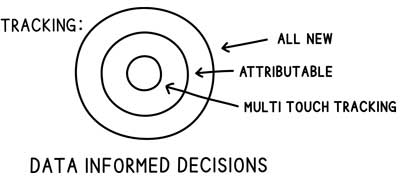|
"In God we trust. All others must bring data."
– W. Edwards Deming

A synopsis of a recent conversation for you.
"Greg, among the things we're working on for 2024 is finding more customers for service X. Is that something you do?"
It is. Tell me more about the service.
"We rolled it out a couple of years ago based on a project we did for a big client. They love it and get great results. We need more people using the service."
Besides that customer, are others using the service?
"Some, but not as many as we need. If you can help with that it would be great. It's the CEO's pet project."
Tell me about the customers that say no. Have any of them asked for this service explicitly? Or is this more like an internal project everyone thinks should be a success?
"Like I said, for the customers that use it, it's great. We just need more customers using it, so we can scale."
Is it possible mass adoption isn't possible? That customers don't want it?
"No. It's something they need. Again, we have customers using it right now."
As we talked, I listened for evidence that the target market wants the service. The reason my friend thinks adoption is low is that his people can't sell it. He may be right. However, it may be that a lot of people don't want to buy it.
How do you know the difference?
Start by going to the target market without the intention to sell. Go to them to learn more about the problems/results this service provides. Sometimes the perfect solution isn't ready for mass adoption. Before you invest a lot in doubling down on the sales effort, invest a little getting some evidence.
That's what we're going to do here. Target market interviews, current customer interviews, and recording current sales conversations. We're going to invest a little before investing a lot.
(though they've already invested a lot. . .so, we're going to invest a little more, before investing a lot more)
Sometimes the problem isn't them, it's us.
|